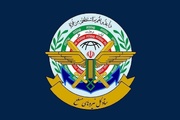He adds that “I do know that a substantial part of the "pain" of sanctions was being applied on the Iranian people.”
Fellow at the Center on Global Energy Policy at Columbia University, says “Sanctions were part of a broad strategy, including diplomatic talks, isolation, and threats of military escalation.”
Nephew in his book, “The Art of Sanctions”, argue that “sanctions are ineffective if they are executed without a clear strategy responsive to the nature and changing behavior of the target.”
Following is the text of the interview with Nephew about his book:
What was the necessity of writing the book “Art of Sanctions”?
There were two reasons. First, sanctions are -- like it or not -- a tool of foreign policy that are only getting more widely used, not less. Though the United States and Europe use them often today, it is only a matter of time until other countries begin to do the same. It is useful to start thinking about their application in a systematic way.
Second, by approaching sanctions with care and rigor, one can avoid a lot of the humanitarian problems that have affected them in the past and also avoid their failures, which can lead to military conflict. Improving sanctions can reduce the overall costs of political and diplomatic disputes, and possibly prevent wars. They merit being crafted with clarity and efficiency.
What was your main question in that book and your answers to it?
My main question was really how I would design and implement sanctions if I had a blank sheet of paper, without any existing policies. Then, I was able to create a framework that, in addition to being largely common sense, seems to satisfy my own instincts for efficiency and effectiveness.
You argue that “sanctions are ineffective if they are executed without a clear strategy responsive to the nature and changing behavior of the target”. Do you think US has “clear strategy” toward Iran beside its sanctions?
I think so, though you and your readers may disagree. It was to apply sanctions in order to persuade the Iranian government that it was better to find a negotiated settlement to international concerns with the Iranian nuclear program than to continue developing that program without addressing those concerns. Sanctions were part of a broad strategy, including diplomatic talks, isolation, and threats of military escalation. At various times, we underscored the importance of this issue to Iran's leaders, including through in person meetings.
At times, our clarity was lost by virtue of disagreements within the United States and with our partners as to what the nature of the dispute is and how best to solve it. But, in all, I think starting in 2006 and continuing until 2015, our strategy was sensible and clear.
You are leader in the design and implementation of sanctions on Iran. Do you know the main “pain” and pressure of the sanctions was on the people of Iran and not government?
The easy answer is for me to point out that the Iranian government is composed of Iranian people and that, by virtue of applying sanctions and pain, we were influencing them as well. And that answer is largely true, in my view.
But, part of my book is also about honesty. So, being honest, yes, I do know that a substantial part of the "pain" of sanctions was being applied on the Iranian people. It was being done in order to help motivate the Iranian government to make changes to its nuclear policies that, in my view (and that of my government), could eventually threaten the United States, our allies, and our interests.
I will note, however, that the pain applied was done neither callously nor carelessly. Throughout the 2006-2013 timeframe, we received many proposals that would have sharply increased sanctions pain. In fact, it would have been easier for us to have agreed to them.
Instead, we tried to be strategic, thoughtful and careful in how we used sanctions. We also maintained humanitarian exemptions to sanctions and even expanded them, such as with medical devices and personal telecommunications. I personally encouraged US and foreign companies engaged in such legal trade to continue with it and to utilize those licenses, and I was not alone within the US government.
Though the Iranian people were damaged through sanctions, this was not an Iraq-style sanctions program and we made clear that there were opportunities for the Iranian government to take to relieve sanctions. And, when the Iranian government took advantage of one of those opportunities, we swiftly moved to relieve the agreed sanctions (and I was part of that too).
Moreover, it should be remembered that the alternative to using sanctions would not have been to accept Iran's nuclear program expanding absent the confidence of the international community that it was intended strictly for peaceful uses.
So, yes, I am prepared to be open and honest about how sanctions inflict pain and how that is a necessary component of their functioning. But, the purpose of the book is to make clear that sanctions can be applied sensibly, avoiding unnecessary suffering and damage to a sanctions target. And, it is my hope that we will take such approaches again in the future.
You argue that “the efficacy of sanctions lies in the application of pain against a target, but targets may have significant resolve to resist, tolerate, or overcome this pain. Understanding the interplay of pain and resolve is central to using sanctions both successfully and humanely.” When you argue about the “target”, how can you separate the government and people? In other words, how can you separate between nation and state in the case of Iranian nation-state?
Well, I would argue that in many cases you cannot, but that's where knowing the country being targeted is so important. In the case of the Iranian government, its fundamental basis is from the popular revolt in the 1970s and the reconstitution of the Iranian government as representative of the people. Whether the Iranian government still does that is a decision for Iran's population to make (though I have my views), but it remains the foundational theory of the modern Iranian state. So, in targeting sanctions against Iran, one would be wise to take that into account.
Other countries are different, with their government more or less influenced by the views and concerns of the people (even in theory). For some countries, it is possible that a ruling elite are even more important and that the population's views are completely discounted. In those countries, targeting the population is meaningless; it's the elites who ought to be targeted with pressure. This, in my view, explains differences in the US sanctions regimes against Iran and against Russia, for example.
And, of course, as noted, there are ways to help address the damage done to populations, such as through humanitarian exemptions and so forth, all depending on the sanctions used.
Interview by: Javad Heirannia
MNA/TT


























Your Comment